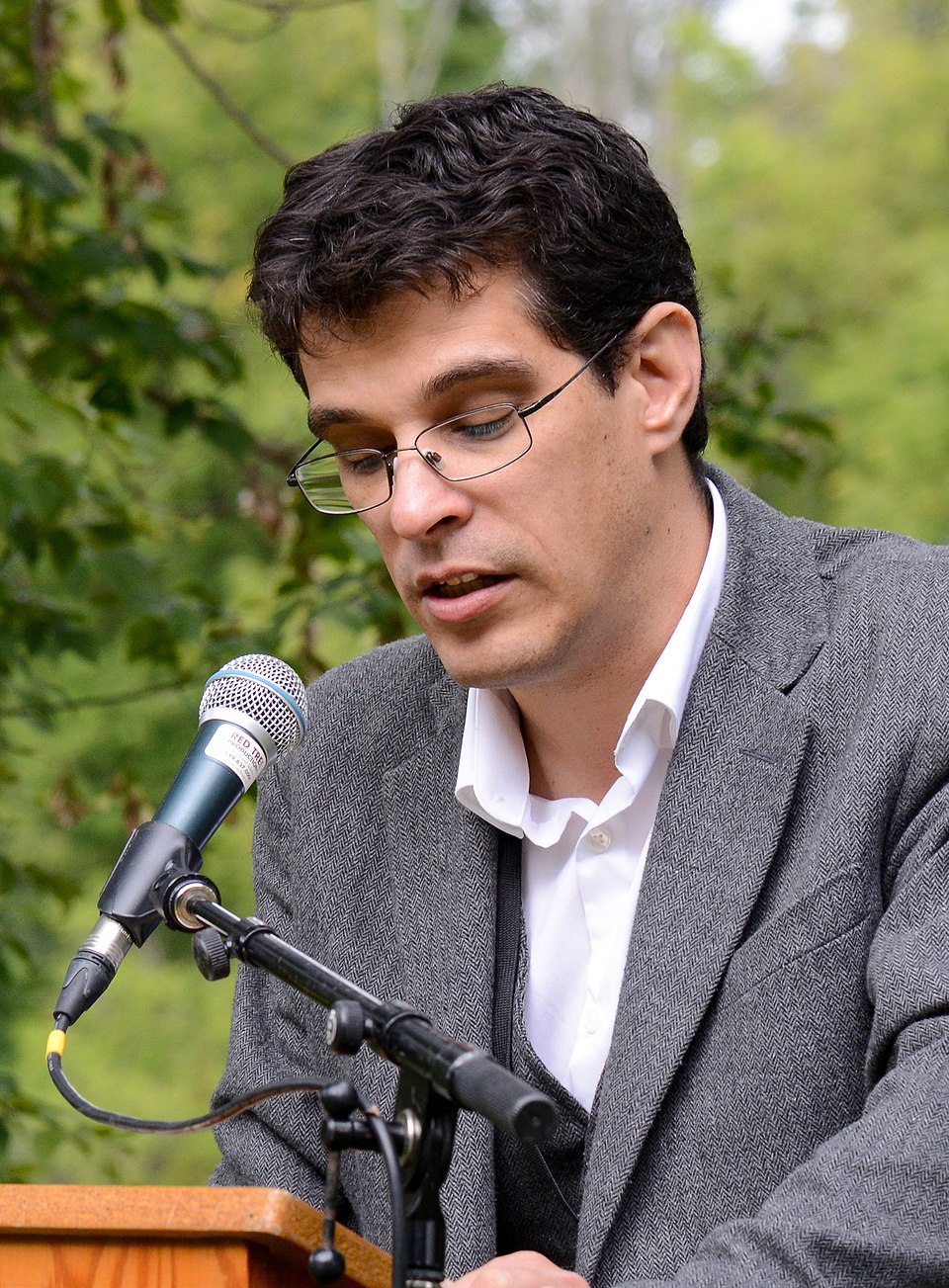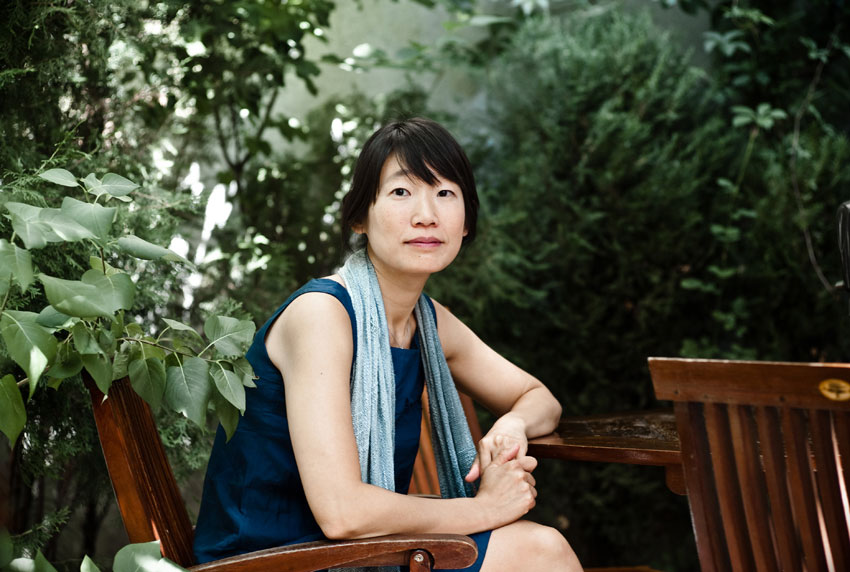Steven Galloway, novelist, professor (born 13 July 1975 in Vancouver, BC). Steven Galloway is widely known for his award-winning international bestseller The Cellist of Sarajevo. He is also known for the controversy surrounding his 2016 dismissal as head of the creative writing program at the University of British Columbia (UBC). Galloway was accused of sexual harassment and sexual assault by a former student, with whom he had a consensual affair. An investigation conducted in 2016 could not substantiate the sexual assault allegations against Galloway. In 2018, Galloway sued the complainant and more than 20 others for defamation. Their appeals were dismissed in 2024. The suit will go to trial, though a date has yet to be set.

Education and Personal Life
Steven Galloway grew up in Kamloops, British Columbia. He studied creative writing at the University of British Columbia (UBC), where he subsequently taught creative writing for years. He has also taught at Simon Fraser University. He is divorced from his first wife, with whom he has two daughters. He remarried in 2018.
Early Career
Steven Galloway's first novel, Finnie Walsh (2000), is about the love of hockey and the way two boys form a bond that carries them through life’s tragedies and trials. The style of Galloway’s early literary influences, Farley Mowat and John Irving, is apparent in this powerful, captivating novel. Finnie Walsh was nominated for the Amazon.ca/Books in Canada First Novel Award.
Ascension (2003), Galloway's second novel, enters a completely different world from his first. It follows the life of a man who, at age 66, decides to walk across a wire strung between the twin towers of New York’s World Trade Center. Ascension looks at his life leading up to this decision. It explores suffering, rejection and the search to find a place free from suspicion and calamity. The novel was nominated for the BC Book Prizes’ Ethel Wilson Fiction Prize. It has since been translated into numerous languages.
The Cellist of Sarajevo (2008)
The Cellist of Sarajevo (2008) is Galloway’s third novel. Set during the siege of Sarajevo in the mid-1990s, it explores the dilemmas of ordinary people caught in the crisis. The title references the true story of Vedran Smailović, a cellist who played for 22 days in sight of snipers to honour the people dying around him. The novel examines the gentleness found in humanity and the lasting and healing power of art. It has become an international bestseller, with rights sold in 30 countries. The novel was nominated for the International IMPAC Dublin Literary Award and won the 2009 Evergreen Award.
The Cellist of Sarajevo sparked some controversy after Smailović demanded recognition of his presence in the novel. Several critics accused the Canadian-born Galloway of appropriation of voice. Galloway has asserted his embrace of the power of the imagination to place oneself in another’s experience, to explore a variety of subject matter, themes and cultural backgrounds.
The Confabulist (2014)
Shortlisted for the Rogers Writers’ Trust Fiction Prize, The Confabulist (2014) is about an elderly man named Martin Strauss who believes that he killed Harry Houdini. The novel’s point of view alternates between Strauss and Houdini up to their encounter in Montreal in 1926. While the story is partially based on real events, as it progresses it becomes increasingly clear that the narrator himself is unreliable.
Dismissal from UBC
In 2014, Steven Galloway became the head of UBC’s prestigious creative writing department. In the fall of 2015, he was informed by the administration that he was being relieved of his duties and placed on paid leave while “serious allegations” of sexual assault and bullying were being investigated. In December 2015, former BC Supreme Court judge Mary Ellen Boyd was brought in to conduct an independent investigation.
Boyd’s official report was submitted to Dr. Gage Averill, UBC’s Dean of Arts, on 25 April 2016. Boyd determined that the sexual assault allegations against Galloway could not be substantiated. She also found that Galloway had an affair for two years with the student who accused him of assault and that this was inappropriate and therefore amounted to sexual harassment. She found that Galloway had made “increasingly inappropriate sexual comments and advances” toward the complainant over several months. Galloway acknowledged and apologized for the affair. (Both he and the complainant, who was older than Galloway, were married at the time.) On 22 June 2016, UBC announced that it was terminating Galloway’s employment due to an “irreparable breach of trust” and “a record of misconduct.”
UBC officials were widely criticized for the way they handled the case. (The Globe and Mail’s Marsha Lederman called it “an absolute mess.”) Galloway and the complainant were both critical of UBC’s actions, and both reported being suicidal as a result of the public fallout from the case.
On 26 September 2016, Madeleine Thien, who holds both a BA and an MFA from UBC, sent a letter to the president, Santa J. Ono, the co-chairs of the creative writing program, Annabel Lyon and Linda Svendsen, and Averill. Thien asked that all references to her be removed from any materials related to the university. She criticized the university for not involving the police in the investigation. (No police report was filed and no charges against Galloway were ever laid.) She said that she did not want to be associated with an institution that would ruin the career and reputation of one of its faculty members, based on unsubstantiated allegations, to protect its own reputation.

Can-Lit Community Divided
In November 2016, 79 people from Canada’s literary community signed an open letter criticizing UBC’s handling of the case. The letter called for an independent investigation into UBC’s firing of Galloway and for proper due process to be followed. The letter was written and circulated by Joseph Boyden and signed by Margaret Atwood, Michael Ondaatje and Yann Martel, among others.
The letter, titled UBC Accountable, generated significant controversy. Many observers expressed concern that it might have a silencing effect and prevent people from coming forward with reports of abuse or assault. Former students of Galloway’s came forward, telling the Canadian Press about some of Galloway’s behaviour that they witnessed or experienced. This included harassment, bullying and an incident where Galloway allegedly slapped a student at a bar. (Galloway has maintained that the “slap” in question was the culmination of a longstanding inside joke between him and the student, which started with the student slapping him, and “was not an act of violence.”)
Thirteen writers — including Miriam Toews, Camilla Gibb and George Murray — later removed their names from the letter. Sixteen others — including David Cronenberg, Ken McGoogan and Jack Hodgins — added their names. An open counter-letter criticizing the UBC Accountable letter was also circulated among Canadian literary scholars and cultural workers. It garnered 613 signatures.
Martel responded to the controversy by saying he would have worded the letter differently but signed it in support of its call for a fairer process for both accusers and accused. “I did NOT sign the letter to defend an empowered white male,” Martel told the Toronto Star. “I did NOT sign it to silence young women, or anyone else. With a clear grievance process, everyone and anyone should feel confident that their voice will be heard.”
The Globe and Mail’s Marsha Lederman reported in 2024 that the Steven Galloway case created an almost irreparably rift in the Canadian literary community. “There have been so many ruptures,” Lederman said in The Decibel podcast. “There are people who still aren’t speaking to each other over this, and in a very acrimonious way…. It’s really been a terrible, terrible time for so many individuals, but also for Can-Lit in general.”
Aftermath
In October 2018, Steve Galloway filed a defamation lawsuit against his main complainant and more than 20 individuals who Galloway claimed “recklessly repeated” false allegations against him. A BC Supreme Court judge granted Galloway access to emails between the main complainant and UBC officials. The complainant challenged this decision. But it was upheld by both the BC Court of Appeal and the Supreme Court of Canada. The complainant — identified only as “A.B.” due to a publication ban granted in March 2019 — and two others also applied to have the lawsuit dismissed as a strategic lawsuit against public participation (SLAPP). Meanwhile, Galloway was awarded a total of more than $200,000 in damages by a labour arbitrator who ruled that UBC violated Galloway’s privacy rights by publicizing the allegations against him.
On 2 December 2021, BC Supreme Court Justice Elaine Adair rejected the anti-SLAPP objection and ruled that Galloway’s defamation suit could proceed. The complainant appealed this decision, but it was unanimously upheld by the BC Court of Appeal in January 2024. The case was appealed to the Supreme Court of Canada, which dismissed the appeal on 10 October 2024 and awarded Galloway costs. Galloway’s defamation suit will now proceed, though a trial date has yet to be set.

 Share on Facebook
Share on Facebook Share on X
Share on X Share by Email
Share by Email Share on Google Classroom
Share on Google Classroom



